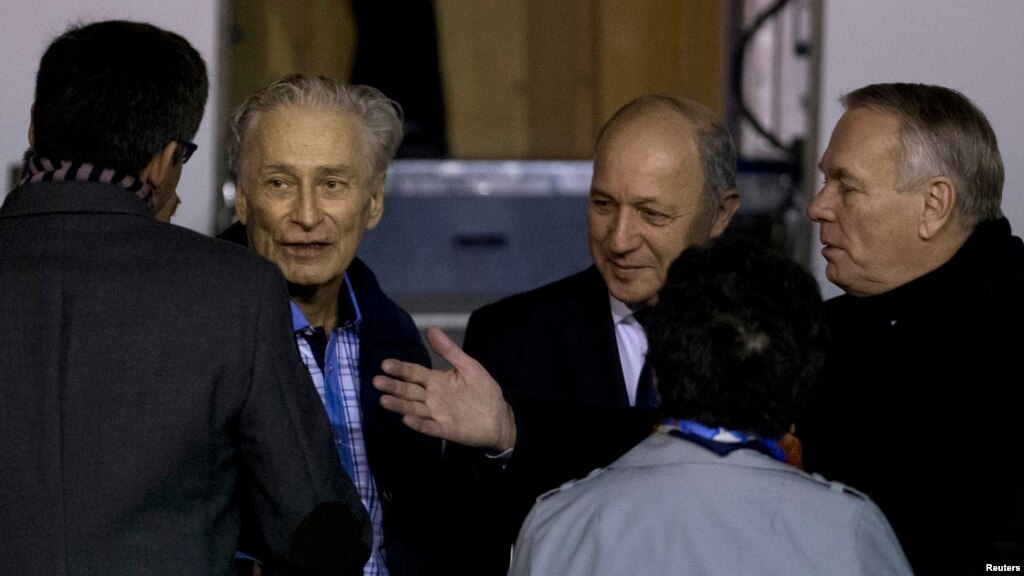
World leaders were in Paris earlier this week to discuss how to deal with the Islamic State militant group. Western countries have differing policies over making ransom payments to win the release of hostages.
In the past month, the Islamic State group has killed two Americans and one Briton. Both countries refuse to pay ransom money to hostage-takers.
A new video from Islamic State militants appeared on the Internet last Sunday. In the video, the group threatens to execute a British aid worker, Alan Henning.
The images were released hours before the start of the Iraq Security meeting in Paris. Laurent Fabius is the French foreign minister. He was asked if his country pays ransom money to terrorist organizations.
Mr. Fabius denied allegations that France had paid ransoms. He told a reporter, “You seem to have information that I don't have.” He also said he could confirm that France does not pay ransoms.
But observers say evidence suggests the opposite is true. French media claim the government paid $34 million in ransom money for the release of four French hostages. The four were kidnapped in Niger in 2010. The kidnappers were supporters of al-Qaida in the Islamic Maghreb.
Ian Bond is head of Foreign Policy at the Center for European Reform.
“What we saw with al-Qaida in the Islamic Maghreb was that they did very good business by kidnapping Western tourists in places like Niger and Mali and then collected ransoms from governments in Europe. And that’s a very negative phenomenon.”
Thomas Hegghammer is with the Norwegian Defense Research Establishment in Oslo. He says most Western countries have paid ransoms in the past.
“No country is innocent of this. But I think it’s clear now that some European countries have been doing it more.”
The latest Islamic State victim, David Haines, was kidnapped with an Italian aid worker. However, the Italian was released earlier this year. It was reported that a ransom had been paid. The Italian government did not comment.
The British government says it will continue to refuse to pay ransoms. Andrew Silke is director of Terrorism Studies at the University of East London.
“The UK's attitude on this is that if they pay a ransom, they'll simply encourage terrorist groups around the world to take British citizens hostage, and put more people's lives in danger.”
The United States says it also refuses to pay ransom money. The Islamic State executed American journalist James Foley last month. His employers, GlobalPost, said the group had demanded $132 million for his release. Days later, another American journalist, Steven Sotloff, was killed.
Hannah Stuart is an expert on terrorism at the Henry Jackson Society in London.
“Ideally we would have an international consensus so perhaps Western liberal democracies, who are the targets of this type of hostage-taking, could agree to not pay ransoms. But then you run into sovereignty issues and you can’t tell other governments how best to protest their citizens.”
In 2012, the United States Treasury estimated that terrorist organizations had collected about $120 million in ransoms over eight years. The U.S. government argues that paying money to hostage-takers may save one life. But it only motivates them to capture more victims.
I’m Adam Brock.
Words in this Story
ransom – n. money that has been paid in order to free someone who has been captured or kidnapped
evidence – v. something which shows that something else exists or is true
claim – v. to say that (something) is true when some people may say it is not true
motivate – v. to give (someone) a reason for doing something
Now it’s your turn to use these Words in this Story . In the comments section below, write a sentence using one of these words and we will provide feedback on your use of vocabulary and grammar.

